Penumbra
A Brief Frictional Double Feature

Game Information
Game Name: Penumbra: Overture, Penumbra: Black Plague
Platform(s): Mac, PC, Linux
Developer(s): Frictional Games
Publisher(s): Paradox Interactive AB
Genres: Horror, Survival Horror, Puzzle
First Release Date: March 30, 2007, February 11, 2008
Last Update Date: N/A
Description: Penumbra: Overture is a first-person survival horror game, emphasizing on survival and problem solving instead of mindless violence and gore.
Surrounded by enemies and assaulted by terror from all sides, Philip must collect clues and solve vexing puzzles while combating the gnawing psychological terrors that assail his mind and threaten to strip him of his sanity.
Reviewed On
Hardware: Black Star
(GeForce RTX 2070, AMD Ryzen 7 2700X, 16 GB RAM)
Platform: Steam
Review Notes
- Edited user files to play at 1440p resolutions, no mods were used.
Why Penumbra? Why Now?
After the glorious time I had with Amnesia: The Bunker, see my article for more details, the stars aligned and MandaloreGaming put out a video on the Penumbra Collection. I have had this collection in my Steam library for many years, dating back to when I had been head over heels into Amnesia: The Dark Descent and SOMA. I had never pulled the trigger on playing them however as my interests shifted away from Frictional’s super spooky, high tension, narrative-driven horror and more into Resident Evil-style survival horror. But with this confluence of events and being more than five years removed from playing the likes of Amnesia: TDD and SOMA, I felt the itch for Frictional’s style of horror game once again.
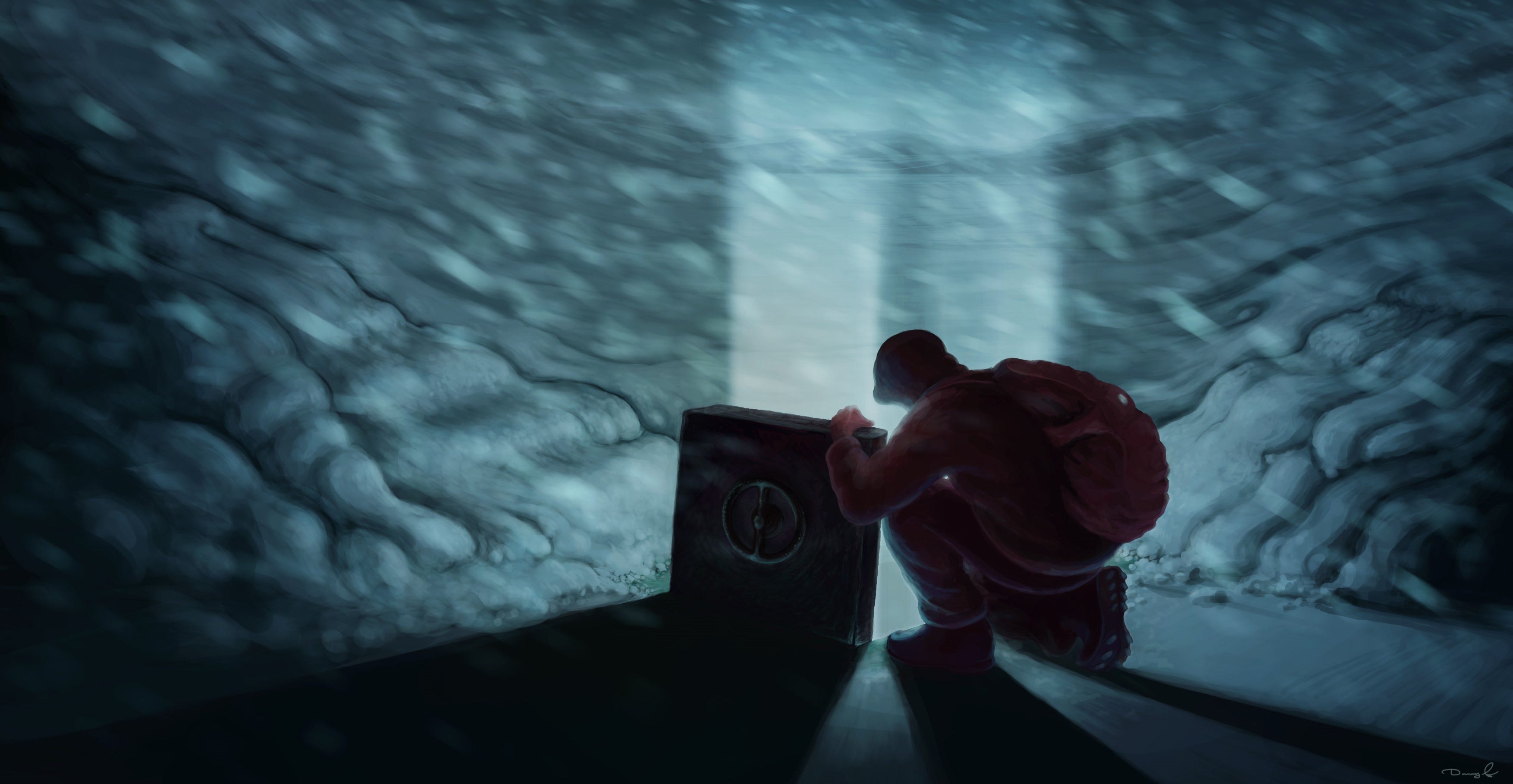
Penumbra: Overture
Overture is an interesting exploration of the origins of Frictional's game design. You play a young man named Philip in search of his estranged father. The trail leads you to the snowy wasteland of Greenland where you immediately begin by delving into a nearby mine. The Penumbra series is played from the first-person perspective and is a fairly linear experience that involves a sci-fi, horror narrative, exploration, puzzle-solving, and combat, kinda…
What has aged well is the physics system that allows for physics-based problem solving and puzzles in the vein of Half-Life 2. Annndd that's about it. The lore, world-building, and story aspects are good but very light and done much better in future games. The main fun in Overture is walking around a sometimes atmospheric environment, upending and tossing aside all the physics objects.
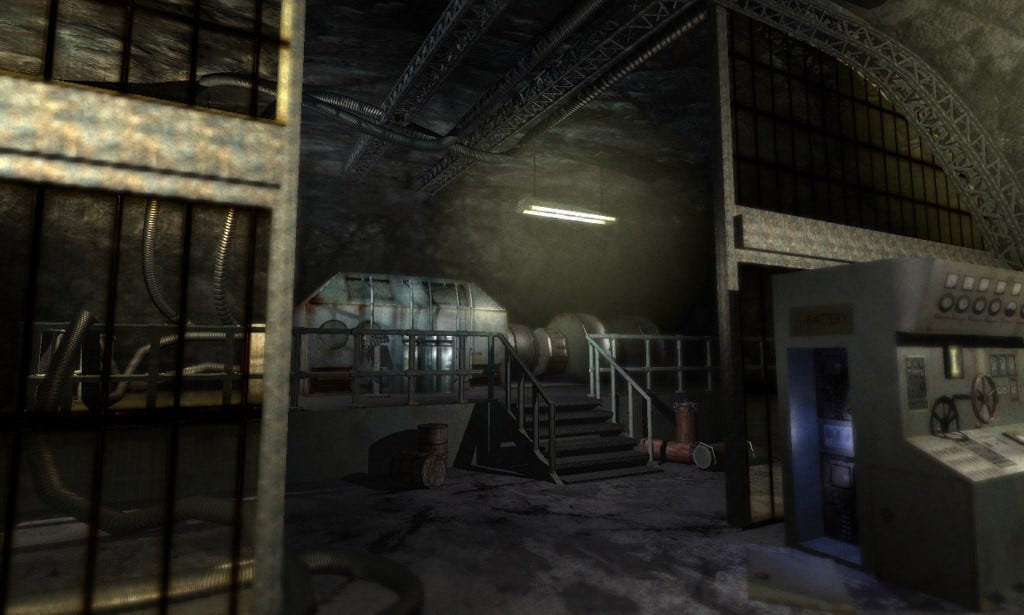
What hasn't aged well is just about everything else. Despite Overture being a very brief experience, the level design and variety leaves much to be desired. For the bulk of the game you'll be in tunnels all of which turn at right angles and lead to progression-significant rooms at the end of them. The environments get very repetitive and feel uninspired. While the puzzle rooms usually have more detail, physics objects, and a better theme, the connecting hallways and tunnels feel under-baked and barren by comparison. The screenshot below is a common sight and a prime example.
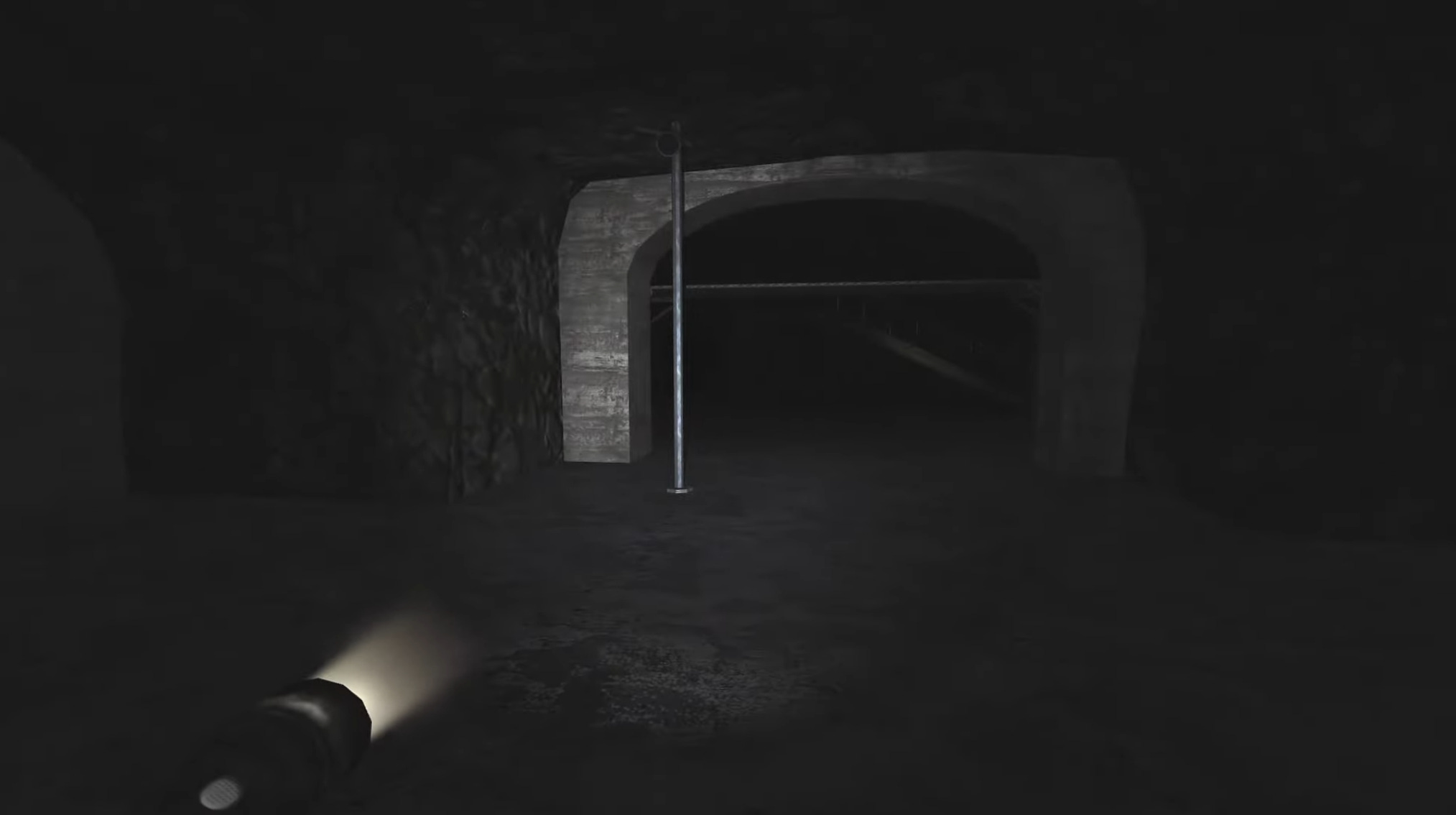
The combat system is the very definition of jank, it's hard to believe it's real. Don’t get me wrong, I’m okay with an obtuse or intentionally clumsy combat system, just don’t then force me into combat situations with aggravating enemies. There are two enemy types, patrolling dog and cave-dwelling spiders, the latter of which being the aforementioned aggravation. Unfortunately, both are very uninteresting, with the dogs being incredibly easy to maneuver around and the spiders being just an absolute nuisance.
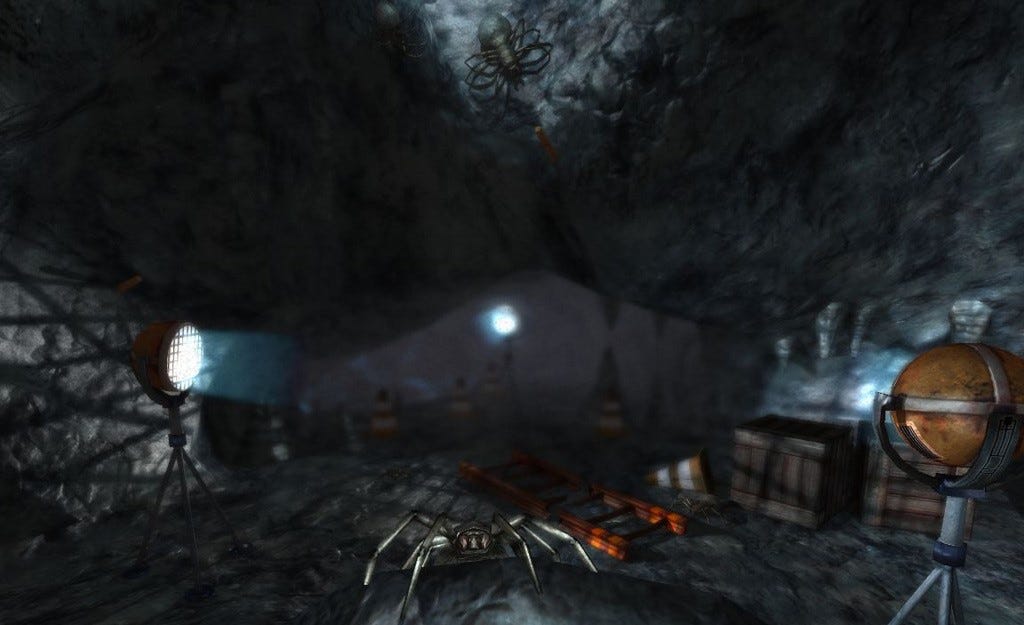
Verdict
★★1/2
While I didn't loath my time exploring Greenland's most notorious lead mine, I was pleased when it ended and probably won't be returning. I think for a development studio’s first published title it is a commendable effort but that’s primarily thanks to the physics engine.
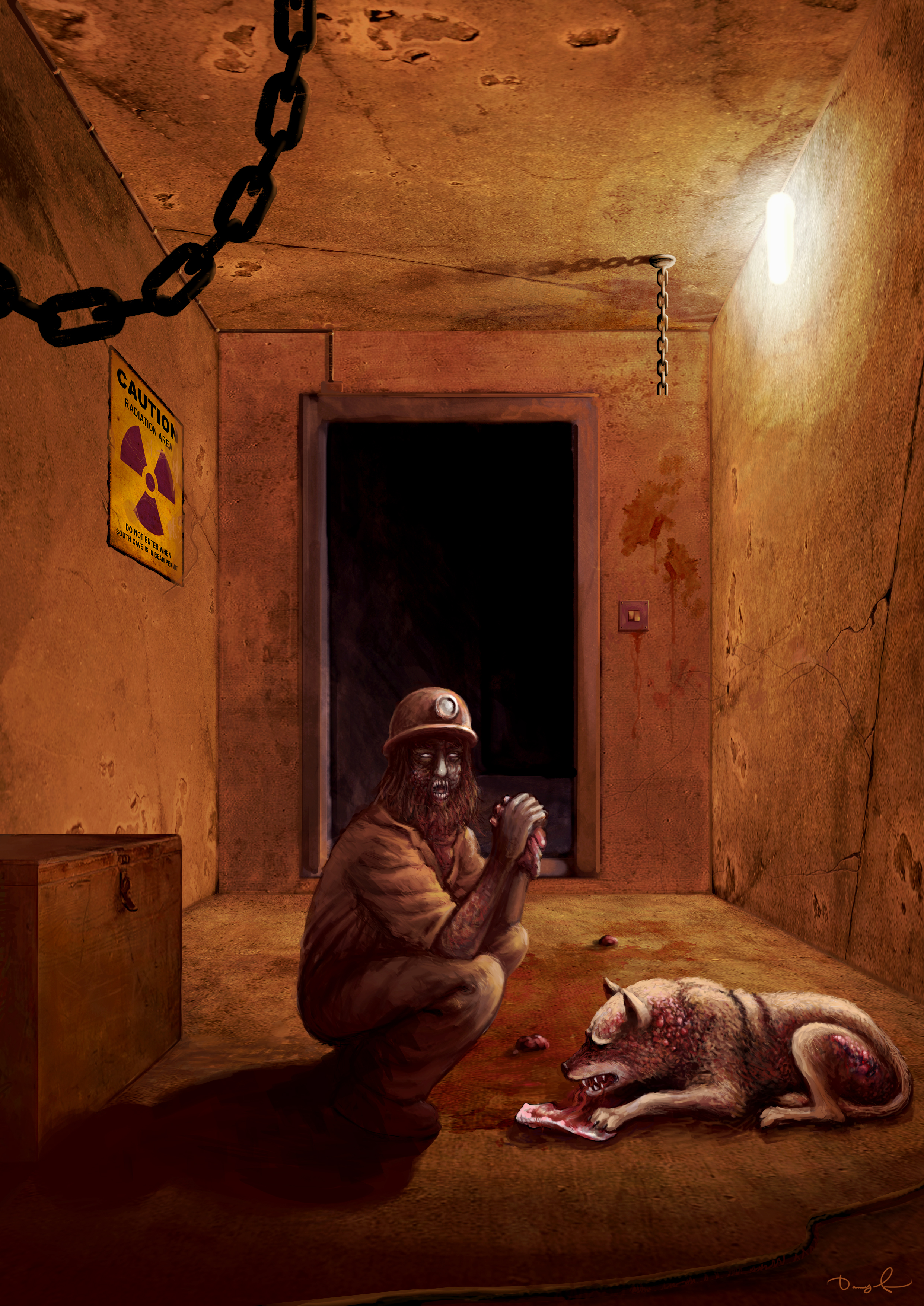
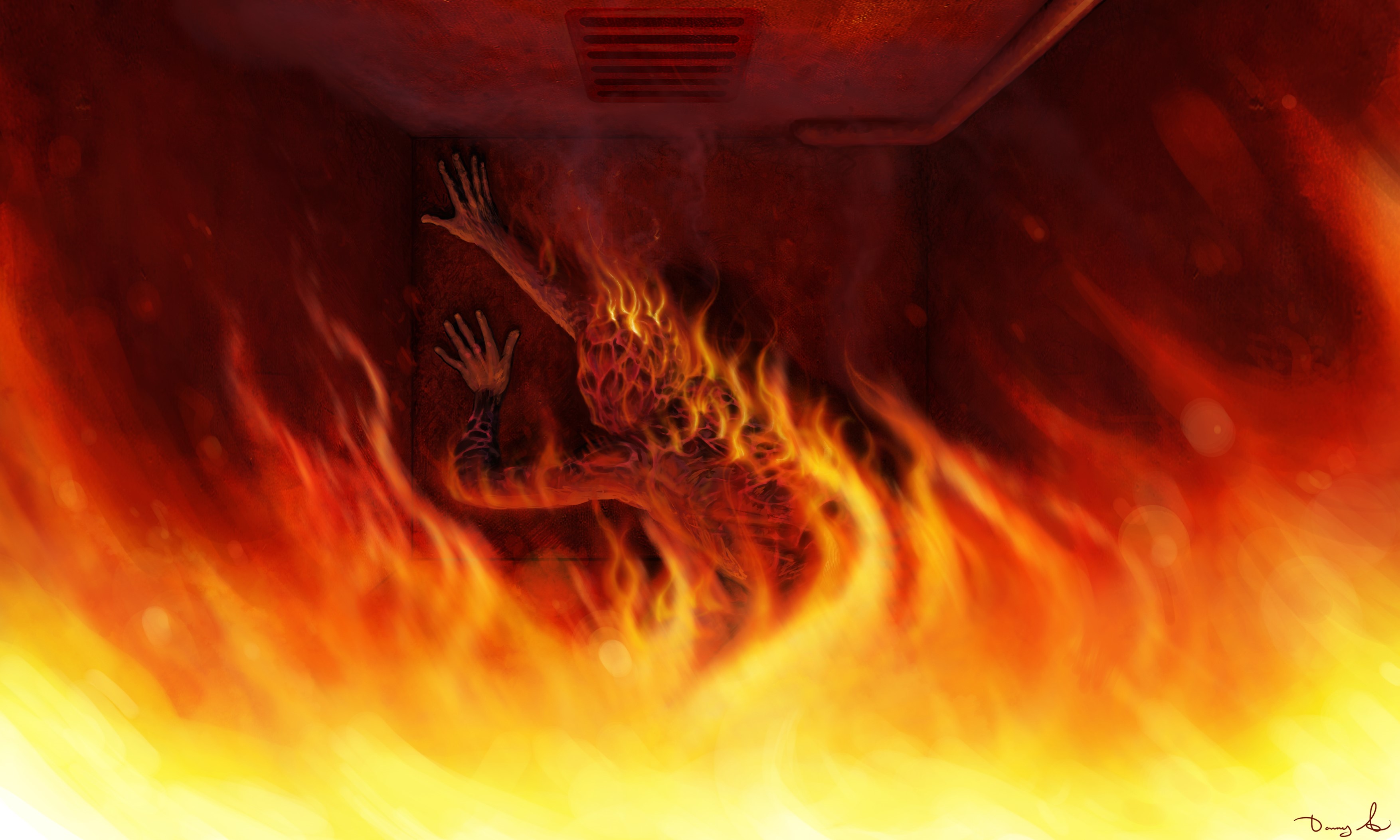
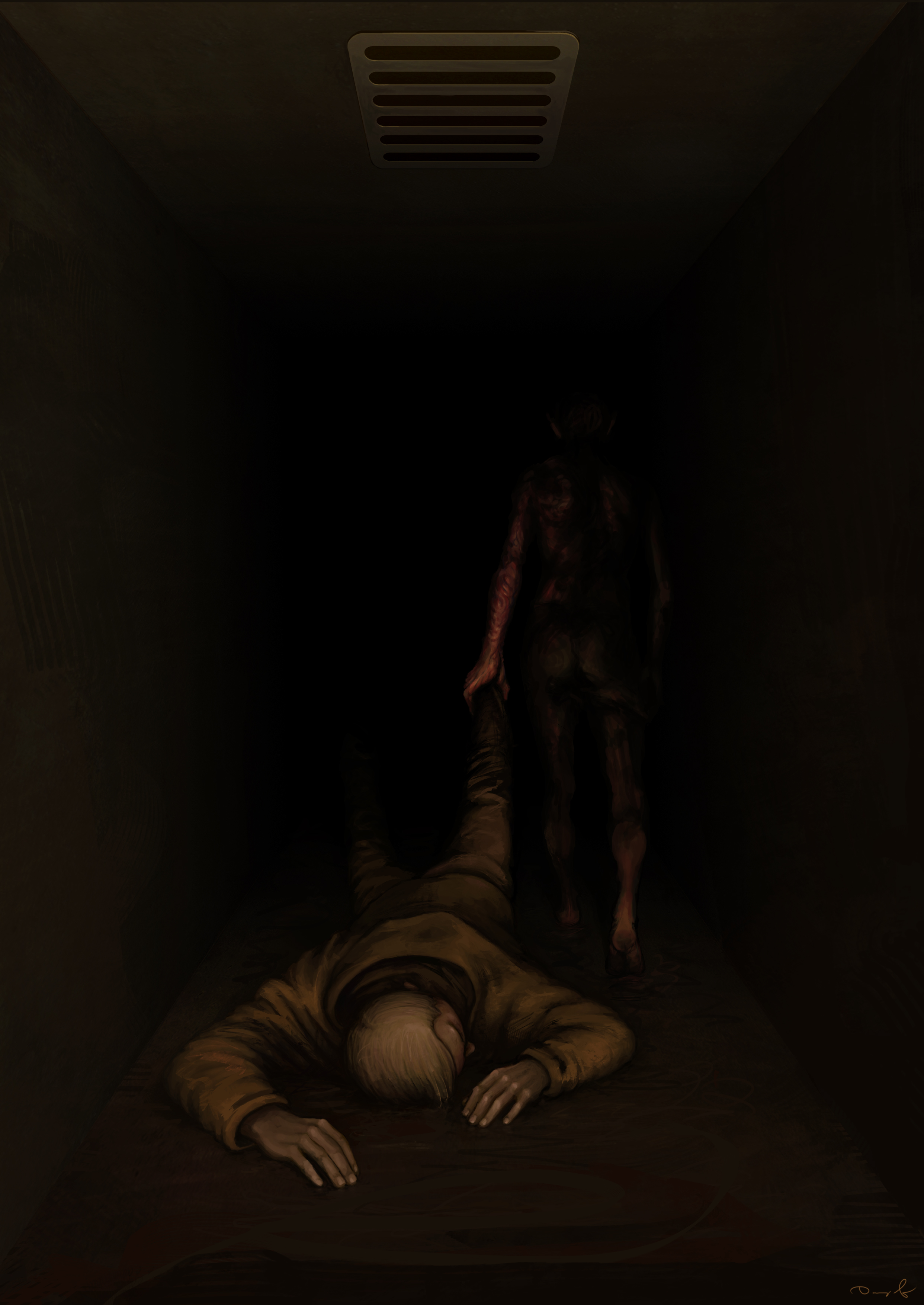
Penumbra: Black Plague
Penumbra: Black Plague significantly improves upon its predecessor's foundation. Everything I loved about Overture is back in Black Plague. The physics engine that drives the players tactile connection to the game world is as charming and mechanically satisfying as ever. The item and physics driven puzzles are back and better than ever. They ride that perfect line of seeming not possible until the solution dawns on you moments before you give up. The puzzles also ride the perfect line of being both very video-gamey and still having a basis in reality. When the opening of a game has a puzzle where you must use a vice to smash a coin down so you can use it to take the screws off of a vent cover you know you’re in for a good time! Oh, here’s a fun example of a simple yet satisfying Penumbra “logic puzzle”. Oh shit! There’s snow in my way! What should I do? How about exploding some barrels of gas???
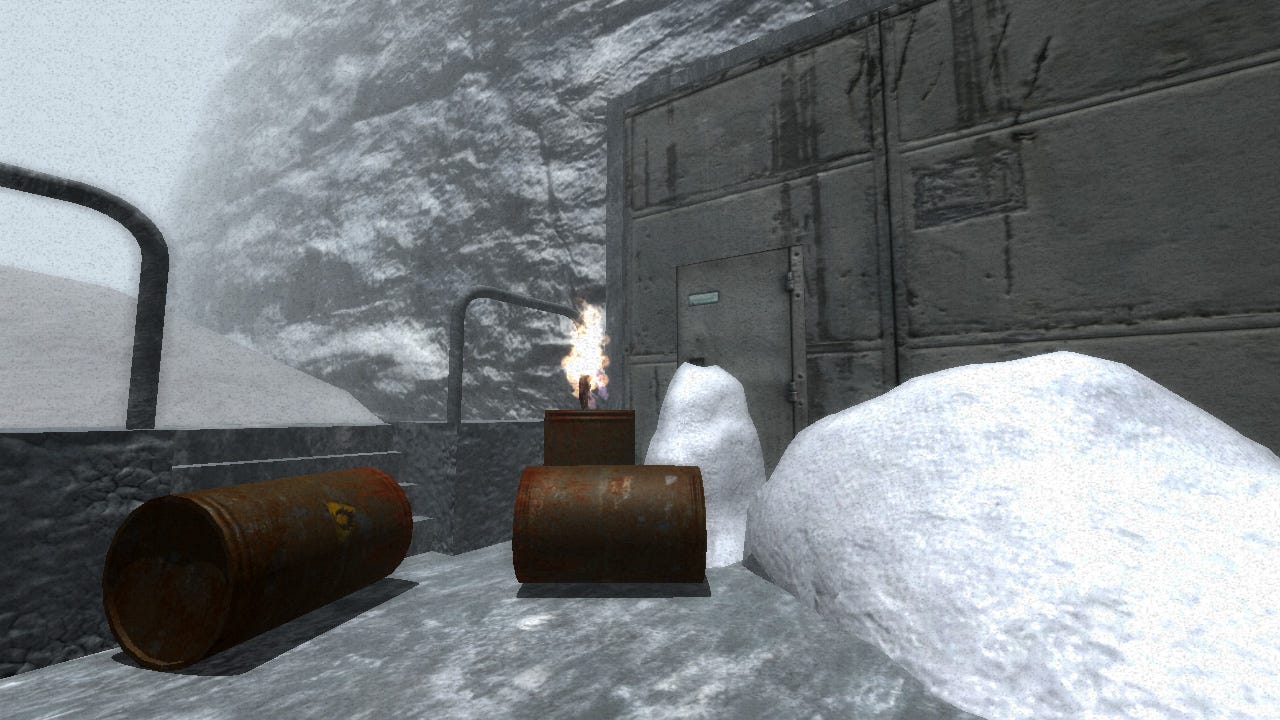
Anyways, back to introducing the game. The protagonist of Overture, Philip, returns to pick right back up on where he left off in his search for his father. In retrospect, Overture feels like essentially a prologue for Black Plague. It sets the stage for what's to come and provides world-building details that add scope to the revelations of Black Plague's story.
Where Black Plague surpasses Overture is in graphical quality and variety. Locations are now represented in much grittier detail. Levels feel more distinct. Rather than the bland mines of Overture, pretty much the entire game takes place in the Shelter, an underground base for a secret society. An entire, near self-sustaining, human habitat is represented through the game's levels. In your exploration you'll come across everything from mess halls to cryogenic chambers, an example of the improved diversity in the level design. All of this contributed to exploration being far more enjoyable and intriguing this time around with new areas always looking fresh and flat out better.
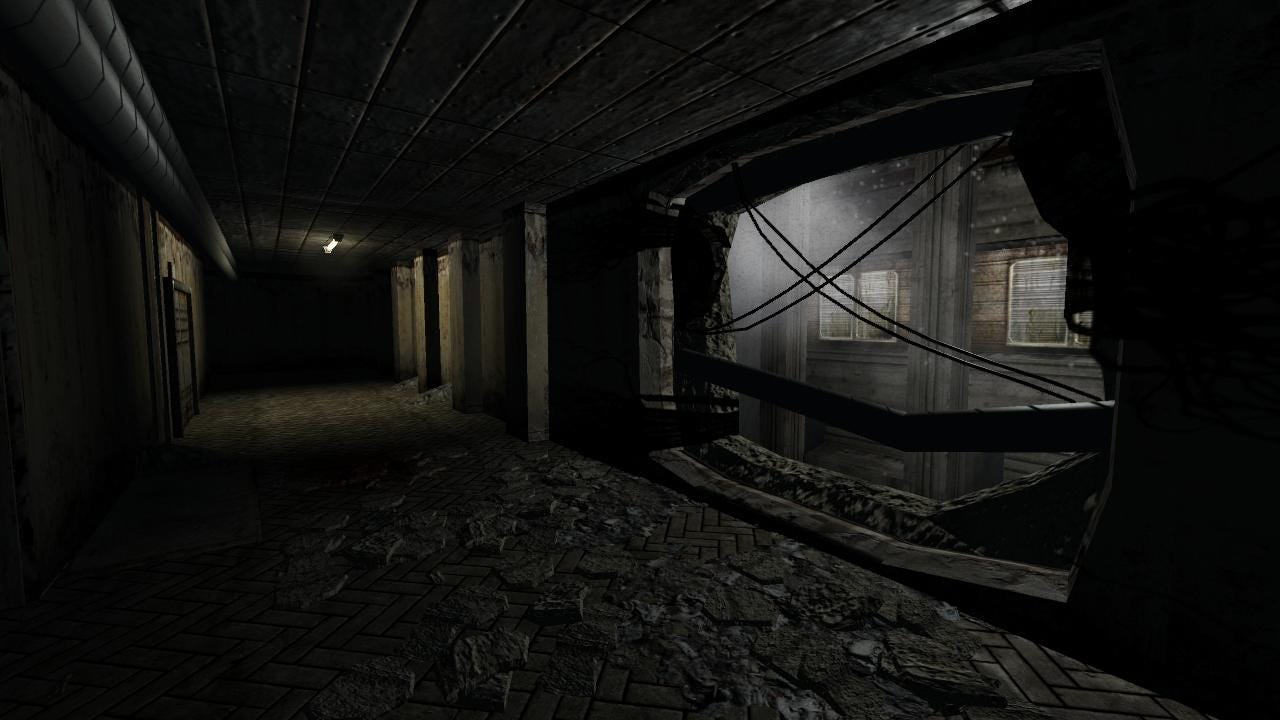
Another major area of improvement is a case of addition through subtraction. Gone are dogs and spiders and so too are any means of combating them. Now there are just roaming, zombie-like enemies which you cannot fight through any conventional means. The worse parts of Overture were by far the forced spider combat sequences, so this is an extremely welcome change. The new enemies will be very mechanically familiar if you are at all acquainted with Frictional's more recent projects. When the game reaches the larger levels, the level design opens up, allowing the player to explore multiple avenues forward while one or more of these monsters roam about. It feels like its successor, Amnesia: The Dark Descent, in these moments. Puzzles and exploration are always more tense with a monstrosity breathing down your neck.
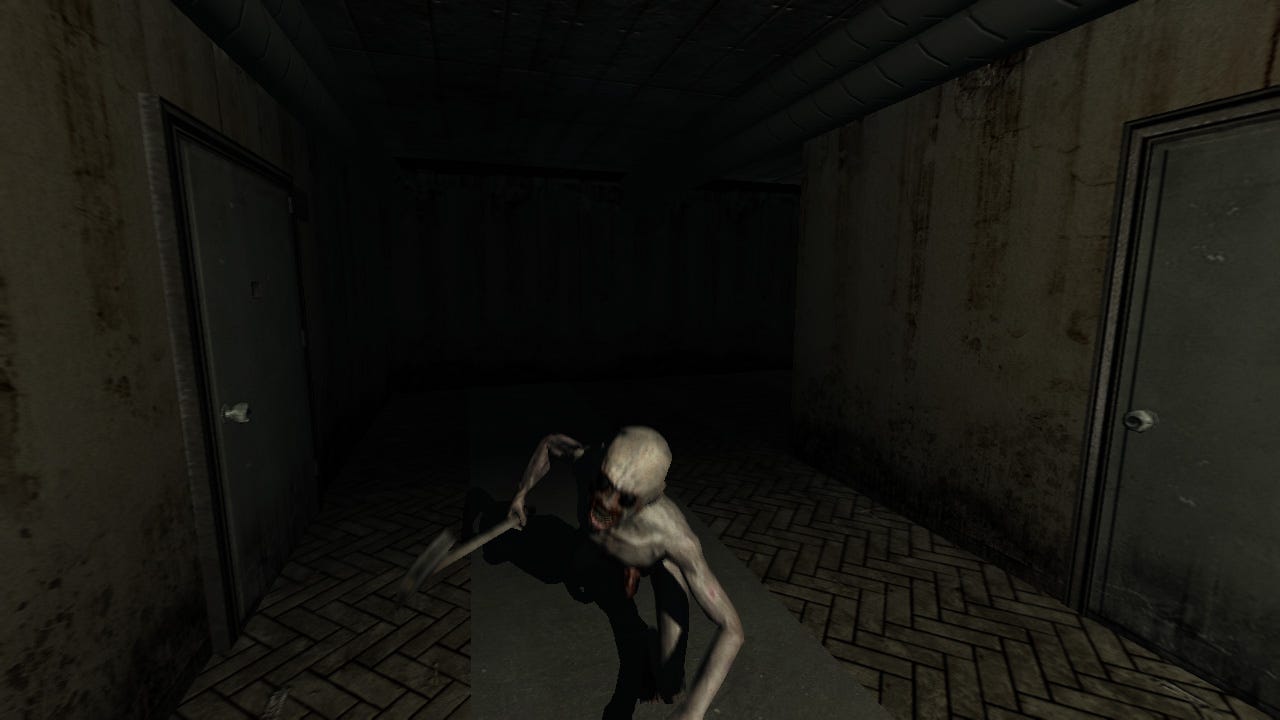
Verdict
★★★1/2
Like I said in the beginning, Black Plague is a step up from Overture in every way. It ups the production value with better graphics, a chilly, somber soundtrack accompaniment chimes in more frequently, the voice acting is still fun and engaging, and the levels are more varied and unique. The puzzles and physics are back and combat is gone, all wins in my book. While Overture is somewhat a tough recommendation, Black Plague is an easy one for any fan of Frictional's catalog.
BONUS REVIEW: Amnesia: Rebirth (because it doesn’t deserve it’s own article)
Off the high that was Black Plague, I still had that aforementioned itch for Frictional’s style of horror game. So, there was only one unplayed game remaining in their catalog, Amnesia: Rebirth…
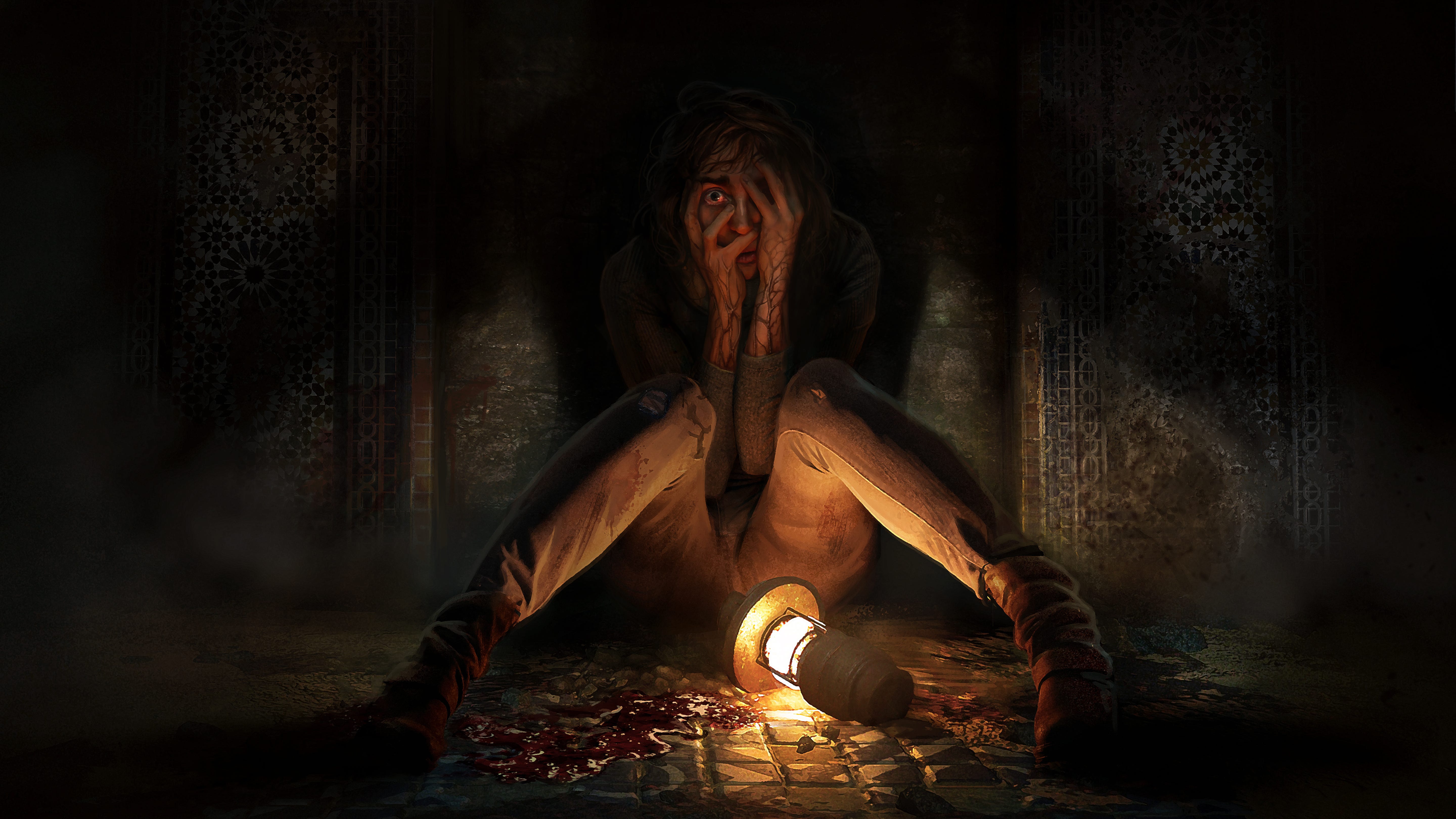
Fuuccckkk, I don’t enjoy this. I’m pretty stunned. If I hadn’t made it clear already, Penumbra: Black Plague, Amnesia: The Dark Descent, SOMA, and Amnesia: The Bunker (all Frictional Games) are four incredible horror games, each unique in their own right. If I made a top 10 list for horror games, they all would probably be shoe-ins. I say all this to provide context for when I say Amnesia: Rebirth is bad, really bad.
I already said that Rebirth doesn’t deserve its own article, so I’ll stick to that and just fire off everything that frustrated me and leave it at that.
- My biggest complaint and the thing that separates Rebirth the most when compared with the rest of Frictional’s catalog, is player agency.
- The game feels incredibly on-rails.
- For the majority of the game there’s zero player choice. A bunch of things contribute to this: linear paths, quick time events, poor communication of player goals, player achievements are constantly subverted by surprise events, chase sequences… I could go on.
- Much of the game boils down to: press ‘W’ to proceed. This feeling is exacerbated by the story being a mess.
- The game is super mystical. Portals, ghosts, spirits, orbs, foreign worlds, yada yada. Amnesia: The Dark Descent had this stuff but used it so sparingly by comparison. Within an hour in Rebirth you’re portal hopping to other dimensions non-stop and now I’ve already lost track of what the hell is going on.
- We lose any sense of being grounded in any sort of reality right from the start. The stakes for the player are forever on unclear.
- This is mostly a personal preference thing regarding the mystical theme and atmosphere, but so much unexplainable shit happens and it made me want to puke.
- What do you mean stuff is unexplained? Like what? Oh I don’t know, how about why do we even have amnesia???
- The sanity/fear mechanic was unclear and ties into some ridiculous pregnancy stuff.
- Main character is indestructible, there is no health bar.
- Puzzles are pretty lackluster compared to TDD and Penumbra. This is partially because item interactivity with the world is limited and basic.
- The ending choices are brain dead.
That is all, now I can move on. Maybe I’ll replay SOMA…
